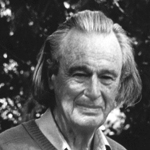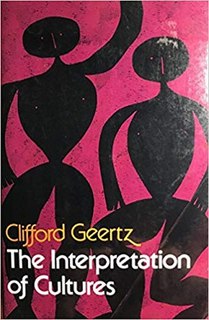Births
| | This section is empty. You can help by adding to it. (July 2010) |
| 1970s .1980s in anthropology. 1990s |
| Other topics: Comics . Fashion . Music . Science and technology . Sociology . video games |
Timeline of anthropology, 1980–1989
1984
1986
1989
1980
1981
1982
1983
1984
1985
1986
1988
1989
| | This section is empty. You can help by adding to it. (July 2010) |
1980
1981
1983
1984
1985
1986
1989
1980
1981
1984
1985
1986
1989

Anthropology is the scientific study of humanity, concerned with human behavior, human biology, cultures, societies, and linguistics, in both the present and past, including past human species. Social anthropology studies patterns of behaviour, while cultural anthropology studies cultural meaning, including norms and values. A portmanteau sociocultural anthropology is commonly used today. Linguistic anthropology studies how language influences social life. Biological or physical anthropology studies the biological development of humans.

Cultural anthropology is a branch of anthropology focused on the study of cultural variation among humans. It is in contrast to social anthropology, which perceives cultural variation as a subset of a posited anthropological constant. The portmanteau term sociocultural anthropology includes both cultural and social anthropology traditions.

Margaret Mead was an American cultural anthropologist who featured frequently as an author and speaker in the mass media during the 1960s and the 1970s.

Ruth Fulton Benedict was an American anthropologist and folklorist.

Ethnography is a branch of anthropology and the systematic study of individual cultures. Ethnography explores cultural phenomena from the point of view of the subject of the study. Ethnography is also a type of social research that involves examining the behaviour of the participants in a given social situation and understanding the group members' own interpretation of such behaviour.

Gregory Bateson was an English anthropologist, social scientist, linguist, visual anthropologist, semiotician, and cyberneticist whose work intersected that of many other fields. His writings include Steps to an Ecology of Mind (1972) and Mind and Nature (1979).
Participant observation is one type of data collection method by practitioner-scholars typically used in qualitative research and ethnography. This type of methodology is employed in many disciplines, particularly anthropology, sociology, communication studies, human geography, and social psychology. Its aim is to gain a close and intimate familiarity with a given group of individuals and their practices through an intensive involvement with people in their cultural environment, usually over an extended period of time.

Clifford James Geertz was an American anthropologist who is remembered mostly for his strong support for and influence on the practice of symbolic anthropology and who was considered "for three decades... the single most influential cultural anthropologist in the United States." He served until his death as professor emeritus at the Institute for Advanced Study, Princeton.

Gold: The Final Science Fiction Collection is a 1995 collection of stories and essays by American writer Isaac Asimov. The stories, which comprise the volume's first half, are short pieces which had remained uncollected at the time of Asimov's death. "Cal" describes a robot that wishes to write, and the title story "Gold" expresses both Asimov's admiration of King Lear and his thoughts on cinema adaptations of his own stories. The story "Gold" won a Hugo Award.
In the social sciences and related fields, a thick description is a description of human social action that describes not just physical behaviors, but their context as interpreted by the actors as well, so that it can be better understood by an outsider. A thick description typically adds a record of subjective explanations and meanings provided by the people engaged in the behaviors, making the collected data of greater value for studies by other social scientists.

Coming of Age in Samoa: A Psychological Study of Primitive Youth for Western Civilisation is a 1928 book by American anthropologist Margaret Mead based upon her research and study of youth – primarily adolescent girls – on the island of Taʻū in the Samoan Islands. The book details the sexual life of teenagers in Samoan society in the early 20th century, and theorizes that culture has a leading influence on psychosexual development.

Anthropology of art is a sub-field in social anthropology dedicated to the study of art in different cultural contexts. The anthropology of art focuses on historical, economic and aesthetic dimensions in non-Western art forms, including what is known as 'tribal art'.
Timeline of anthropology, 1920–1929

John Derek Freeman was a New Zealand anthropologist known for his criticism of Margaret Mead's work on Samoan society, as described in her 1928 ethnography Coming of Age in Samoa. His attack "ignited controversy of a scale, visibility, and ferocity never before seen in anthropology."

Margaret Mead Award is an award in the field of anthropology presented (solely) by the Society for Applied Anthropology from 1979 to 1983 and jointly with the American Anthropological Association afterwards. This award was named after anthropologist Margaret Mead, who had a particular talent for bringing anthropology fully into the light of public attention. It is awarded annually but once became every-other-year from 1991 to 1999.

Robin Fox is an Anglo-American anthropologist who has written on the topics of incest avoidance, marriage systems, human and primate kinship systems, evolutionary anthropology, sociology and the history of ideas in the social sciences. He founded the department of anthropology at Rutgers University in 1967 and had remained a professor there for the rest of his career, also being a director of research for the H. F. Guggenheim Foundation from 1972 to 1984.

The Interpretation of Cultures: Selected Essays is a 1973 book by the American anthropologist Clifford Geertz. The book was listed in the Times Literary Supplement as one of the 100 most important publications since World War Two.

Negara: The Theatre State in Nineteenth-Century Bali is a 1980 book written by anthropologist Clifford Geertz. Geertz argues that the pre-colonial Balinese state was not a "hydraulic bureaucracy" nor an oriental despotism, but rather, an organized spectacle. The noble rulers of the island were less interested in administering the lives of the Balinese than in dramatizing their rank and hence political superiority through large public rituals and ceremonies. These cultural processes did not support the state, he argues, but were the state.
It is perhaps most clear in what was, after all, the master image of political life: kingship. The whole of the negara - court life, the traditions that organized it, the extractions that supported it, the privileges that accompanied it - was essentially directed toward defining what power was; and what power was what kings were. Particular kings came and went, 'poor passing facts' anonymized in titles, immobilized in ritual, and annihilated in bonfires. But what they represented, the model-and-copy conception of order, remained unaltered, at least over the period we know much about. The driving aim of higher politics was to construct a state by constructing a king. The more consummate the king, the more exemplary the centre. The more exemplary the centre, the more actual the realm.
This bibliography of anthropology lists some notable publications in the field of anthropology, including its various subfields. It is not comprehensive and continues to be developed. It also includes a number of works that are not by anthropologists but are relevant to the field, such as literary theory, sociology, psychology, and philosophical anthropology.
Hildred Storey Geertz is an American anthropologist who has studied Balinese and Javanese kinship practices and Balinese art in Indonesia.